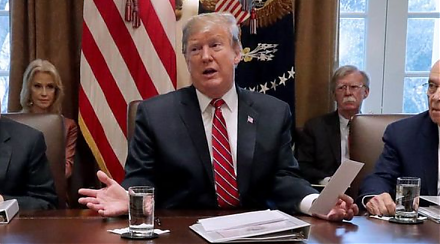

2018-12-03 10:40:00 Mon ET
federal reserve monetary policy treasury dollar employment inflation interest rate exchange rate macrofinance recession systemic risk economic growth central bank fomc greenback forward guidance euro capital global financial cycle credit cycle yield curve
Bank of England publishes its latest insights into the economic impact of Brexit on British real productivity, capital investment, and labor supply as of 2018Q4. With a cautious tone, the U.K. central bank suggests that its future interest rate decisions would depend on the trade terms of the U.K. departure from the European Union. With Brexit, economic policy uncertainty weighs on U.K. productivity and economic growth, and future lower immigration may adversely affect British labor supply and real macro performance.
Brexit imposes financial constraints on both capital investment and labor supply that may reinforce the current economic slowdown in the U.K. in light of the neutral interest rate at which the British economy grows without much inflationary pressure. Bank of England Governor Mark Carney acknowledges the brutal fact that Britain is not fully prepared for a cliff-edge Brexit. Carney predicts that the U.K. economy may shrink by 8% in mid-2019 in the worse-case scenario where Britain leaves the European Union free trade bloc with no deal and no transition period to smooth the arcane process. When push comes to shove, the law of inadvertent consequences counsels caution.
If any of our AYA Analytica financial health memos (FHM), blog posts, ebooks, newsletters, and notifications etc, or any other form of online content curation, involves potential copyright concerns, please feel free to contact us at service@ayafintech.network so that we can remove relevant content in response to any such request within a reasonable time frame.
2019-04-27 16:41:00 Saturday ET

Tony Robbins suggests that one has to be able to make money during sleep hours in order to reach financial freedom. Most of our jobs and life experiences tr
2020-11-24 09:30:00 Tuesday ET

Many analytic business competitors can apply smart data science to support their distinctive capabilities and strategic advantages. Thomas Davenport and
2020-10-27 07:43:00 Tuesday ET

Most agile lean enterprises often choose to cut costs strategically to make their respective business models fit for growth. Vinay Couto, John Plansky,
2019-02-13 11:00:00 Wednesday ET

President Trump may reluctantly sign the congressional border wall deal in order to avert another U.S. government shutdown. With his executive power to decl
2019-10-19 16:35:00 Saturday ET

European economic integration seems to have gone backwards primarily due to the recent Brexit movement. Brexit, key European sovereign debt, and French and
2023-06-19 10:31:00 Monday ET

A brief biography of Dr Andy Yeh (PhD, MFE, MMS, BMS, FRM, and USPTO patent accreditation) Dr Andy Yeh is responsible for ensuring maximum sustainable me